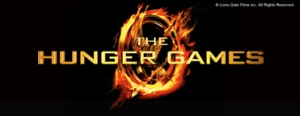For many years now I have had this mental image from a favorite childhood book. I would think of it at odd times while lying in my dorm room, or in my first apartment, or in all the apartments that came after. It was an adventure novel of two men, braving the wilderness and struggling to survive against daunting odds. It was the type of rough-hewn, straight-talking, no-holds-barred kind of wilderness adventure that – to the extent possible for young readers – lacked any hint of sentimentality. Here were two men calling upon every shred of human ingenuity to survive against savage beasts, fierce elements, and harrowing terrain.
And then it happened.
One man was left waiting in a cave while his companion scouted ahead. Despite all the hardships he had already endured, this man suddenly realizes that loneliness is the worst. He manages to trap a snowshoe hare for food, but instead of killing the rabbit, this survival-toughened mountain man builds a small cage and gathers blades of grass. This is the image that has travelled with me: even more than food, companionship is the greatest human need.
I recently endeavored to find this story. I was pretty sure who the author was, and although I couldn’t remember exactly which book, I thought I would know it when I saw it. I pulled all of Jim Kjelgaard’s books from my shelf – I even reread a couple – but the one I was looking for was not there. I went to the library to expand my search, and as soon as I cracked the cover, I knew I had found it. A couple hundred pages later, I was reading the words that had left such a powerful image all those years before.
“It seemed that anything was bearable as long as somebody or something was present to offer companionship. No man was really sufficient unto himself; this loneliness was far worse than the hunger that gnawed at his belly. Antray pulled his belt in, but he could not alleviate the gnawing in his mind as easily… Night came and he looked again at the rabbit. He was hungry, hungrier than he had ever been before, it seemed, but he wasn’t lonely. He’d save the rabbit…” Jim Kjelgaard, Wild Trek1
The Bible tells us that a cord of three strands is not quickly broken (Ecclesiastes 4:12). This passage undergirds numerous spiritual lessons, from an understanding of the Trinity to the strength of marriage vows bound between husband, wife, and God. But here’s a more general underpinning: It is not good for man to be alone (Genesis 2:18).
God has sent each one of us on a rough-hewn, straight-talking, no-holds barred wilderness adventure. But He never intends for us to travel alone. The truth of this statement is what burned this story’s image so indelibly into my heart. Haven’t you, too, experienced the power of companionship? Haven’t you yearned for it, been blessed by it, shared it?
Thank God for the blessing of companionship. Then look around you, and seek out opportunities to spread this blessing to others.
“But if we are the body, why aren’t His arms reaching? Why aren’t His hands healing? Why aren’t His words teaching? And if we are the body, why aren’t His feet going? Why is His love not showing them there is a way?” ~Casting Crowns “If We are the Body”
“By this everyone will know that you are my disciples, if you love one another” (John 13:36)
1Kjelgaard, J. (1950.) Wild Trek. New York: Bantam Books


